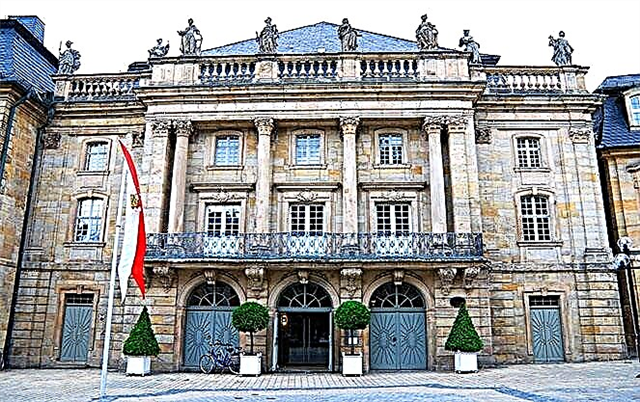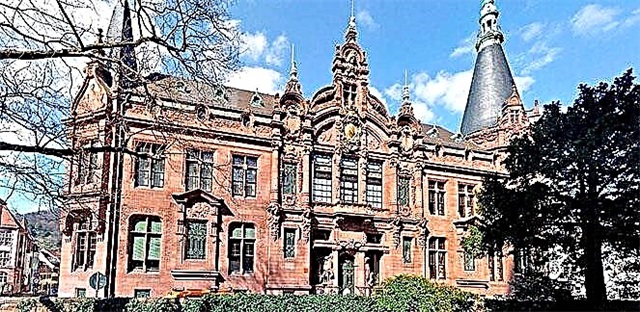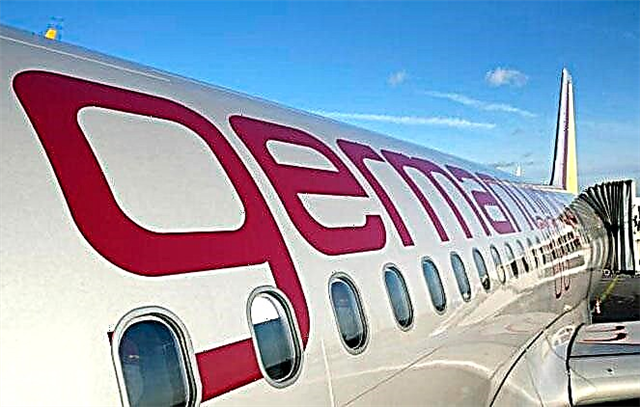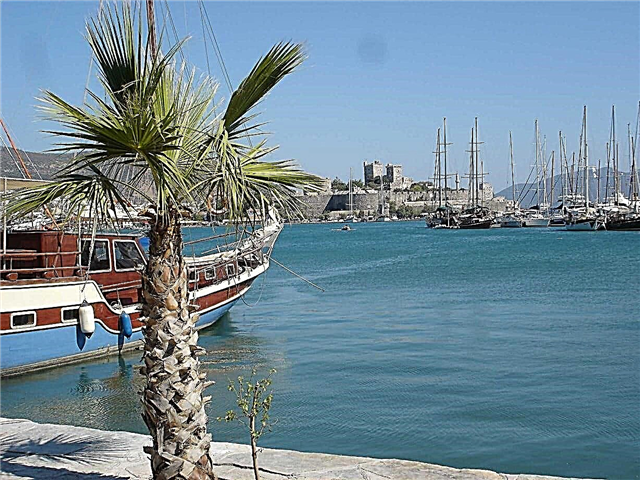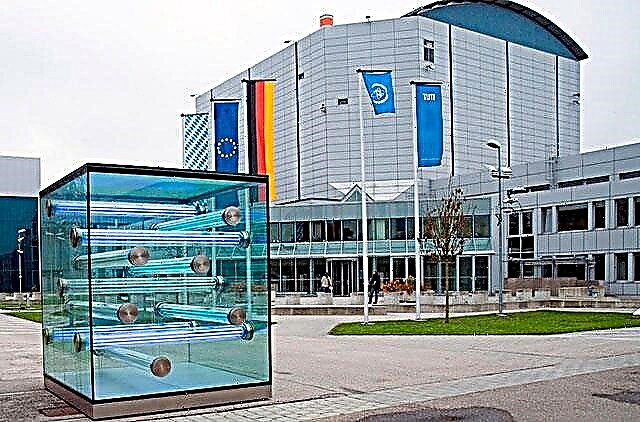Studying abroad is becoming more and more popular among residents of the CIS, because it is not only an opportunity to obtain good knowledge and acquire demanded specialties, but also one of the methods of legal immigration to developed countries. Since tuition fees appeared in many universities in the former USSR, students began to compare prices with foreign educational institutions and found that they were quite comparable. Moreover, it turned out that education in some European universities is generally free, including for foreigners. One of these educational institutions is the Munich Technical University.

History of University
Munich is the capital of Bavaria, which was once an independent state and is now one of the richest lands in Germany. In 1868, King Ludwig II of Bavaria founded an educational institution called the Royal Bavarian Technical School. It was this educational center that, over time, undergoing a series of renaming, developed into the Technical University of Munich. The university received its current name in 1970.
The German name of the university is Technische Universität München (TUM). You can enter the Technical University of Munich in the same way as any other higher educational institution: for this you must meet the requirements of the university, apply for admission to study and pass a competitive selection.
He is a member of the TU9 association of technical universities in Germany. In the ranking of German universities, TUM constantly occupies the top lines. Despite the name, among the specialties for which training is carried out at the university, there are also very far from technical ones - for example, medicine and economics.
For 150 years of its existence, the Technical University has trained a huge number of specialists, and many of them have achieved truly outstanding success. Among them:
- Thomas Mann is the 1929 Nobel Prize Laureate for Literature.
- Konrad Bloch is a 1964 Nobel laureate in physiology or medicine.
- Heinrich Otto Wieland - 1927 Nobel Prize in Chemistry.
- Johann Deisenhofer is the 1988 Nobel Prize Laureate in Chemistry.
- Wolfgang Ketterle is the 2001 Nobel Prize Laureate in Chemistry.
And this is not a complete list of Nobel laureates who graduated from the Technical University of Munich.
However, graduates of this educational institution not only make a significant contribution to science, but also occupy leadership positions in major companies that play an important role in the development of the German and world economy. In particular, the Chairman of the Board of BMW Norbert Reithofer and Berndt Pischetsrieder, who holds a similar post at Volkswagen, as well as the founder of Siemens, Ernst von Siemens, graduated from the Technical University in Munich.
Distinctive features of the university
The university conducts not only training of students, but also a lot of scientific work, including by the efforts of the students of the university. At the same time, the emphasis is on joint scientific research in the field of technical, natural sciences and medicine. It is at the junction of various sciences that the main scientific discoveries have been made recently.
The university has its own tokamak - an installation for confining plasma in a magnetic field, used to study the processes of thermonuclear fusion.
In addition, there is a particle accelerator and a nuclear reactor. The latter, due to the protests of environmentalists, who have great support in the country, is not currently used, but it is not being dismantled either.
The university includes the institutes of quantum optics, plasma physics, astrophysics and extraterrestrial physics, members of the Planck Society, as well as the Meissner and Schottky institutes, the headquarters of the South European Observatory.
The university also owns a medical clinic, the Center for Heart Diseases and the Schwabing Children's Clinic.
Interesting research in the field of economics, life sciences, physical education and sports is carried out by the Weihenstephan Center for Land Use, Environment and Nutrition. The combination of technical and humanitarian sciences within the framework of one educational institution makes the Technical University of Munich a truly unique institution.
Take a sociological survey!
[yop_poll id = ”14 ″]
The territorial location of the university and the life of students
The university buildings are scattered over a fairly large area. For example, the Weihenstephan Center and the Faculty of Food Technology are located in Freising, a small town near Munich. Some of the university buildings are concentrated directly in Munich.
Some faculties are located in Garching, a suburb of the capital of Bavaria, where a new university campus has been built. Garching is connected to Munich by a metro line.
As for student dormitories, in Garching they are located outside the campus, but a dormitory for students who study in Freising is being built directly on campus.
The life of students and teachers is not limited only to study and scientific research. The university hosts the TUNIX and GARNIX festivals, and a rowing regatta is held annually.
Students have the opportunity to use the university libraries, of which there are as many as 10, and to sing in the Munich University Choir. There are also several programs and seminars designed to assist university graduates in starting their own business.
In addition, the students of the Technical University have at their disposal sports and entertainment facilities of the second most important city (after Berlin) in Germany.
Faculties of the Technical University of Munich
In total, the university has 13 faculties. The architecture, construction and geodesy, electronics and information technology, economics, medicine and sports faculties are located in Munich. The buildings of the Faculty of Chemistry, Mathematics, Physics, Mechanical Engineering and the Faculty of Informatics are located in Garching. The Faculty of Education, Nutrition and Land Management is located in Freising.
Each faculty has different specializations. Currently, the university provides training in 156 specialties.
How to apply to the Technical University of Munich
True, it should be borne in mind that this is one of the most prestigious universities on the planet and the competition for the right to be its student is quite serious: thousands of applicants from different countries of the world annually apply for admission to this educational institution, but only one in ten of them gets the opportunity to study in him.

Of course, each university has its own specific requirements. You can get acquainted with them by visiting the official TUM website. We will focus on the requirements for applicants from the CIS countries.
Preparation for admission to universities in Germany
School programs in the CIS countries and Germany are somewhat different. In particular, the process of obtaining secondary education in German schools is longer. For this reason, admission to German universities immediately after leaving school in Russia or other post-Soviet states is, for the most part, impossible. However, some universities make exceptions for applicants who graduated from high school with a gold medal, as well as for graduates of specialized German language schools.
According to the Germans, holders of school certificates obtained in the CIS countries must complete their studies for another 1-2 years, so that the total period of study is 12-13 years, which are compulsory for Germany - this is how much a German child must study before entering university.
You can finish your studies by enrolling in one of the universities in your home country, and graduating from it for one or two years, or entering a special educational institution of pre-university training, called studienkolleg, in Germany itself.
 Moreover, it is necessary to enter the studienkolleg of the profile in which you intend to receive higher education in the future. In addition, it is advisable to graduate from the studienkolleg at the university where you intend to study. It should be borne in mind that although you can formally enter any university in the country if you meet the profile, this will create additional difficulties for you. Therefore, it is recommended to graduate from the studienkolleg at the Technical University of Munich.
Moreover, it is necessary to enter the studienkolleg of the profile in which you intend to receive higher education in the future. In addition, it is advisable to graduate from the studienkolleg at the university where you intend to study. It should be borne in mind that although you can formally enter any university in the country if you meet the profile, this will create additional difficulties for you. Therefore, it is recommended to graduate from the studienkolleg at the Technical University of Munich.
What documents will be needed
First of all, the university is interested in documents about your education. Therefore, you will be required to:
- a certificate of secondary education and an extract with grades;
- graduation document of studienkolleg. For students who have completed 1-2 courses in one of the universities of the CIS, instead of this document, it is necessary to provide a certificate of completion of the preparatory program Univorbereitung;
- a diploma of higher education and an extract from it, if you have one, or a bachelor's degree for admission to a master's program.
- a certificate of the level of proficiency in German or English (in a number of specialties, training in English is possible). The level of language proficiency must be at least C1 and be confirmed by an international certificate.
In addition, you may need a cover letter and an autobiography.
All documents must be translated into German, made in accordance with the rules of the university. As you know, the Germans are famous for their pedantry and if they violate any rules, they return the papers without any explanation. Therefore, if you are not confident in yourself, it is better to contact one of the agencies that send students to study abroad for help.
Student visa to Germany
Studying at a German university presupposes a long-term stay in the country, therefore, a category C visa is not suitable for this purpose - a national student visa of category D is required.
To obtain it, you should contact the German diplomatic mission in your country and provide the following documents:
- application form for a long stay;
- a statement in accordance with §55 of the Residence Act in the Federal Republic of Germany;
- three color photographs 3.5 x 4.5 cm on a white background;
- passport and a copy of the page with personal data;
- internal passport and copies of personal data and registration pages;
- invitation from the university;
- proof of financial solvency. This can be funds blocked for study on an account in a German bank, or an account statement in a Russian bank at the rate of 720 euros per month. In addition, it can be confirmation of your scholarship, sponsorship letter or surety, issued in accordance with the law. For the first year of study, you will have to confirm the availability of 8 640 euros;
- a document on the last education received - a diploma or certificate.
- a letter of motivation, in which you need to explain why Germany was chosen for study, and inform about the absence of intentions to stay in the country after graduation;
- an autobiography about 1 sheet with all the basic data about yourself;
- a certificate of the level of proficiency in the language in which you intend to study;
- health insurance policy.
Of course, all documents must be translated into German by a translator certified by the German diplomatic office. The visa processing time will be about one month.
You can use the visa-free regime to travel to Germany or a category C visa to participate in scientific seminars and short-term study programs, or if you intend to take language courses in order to improve your knowledge of the German language.
If you do not know German or German laws, Coracle will help you understand important bureaucratic processes and arrange a blocked account, public or private health insurance, as well as obtain road risk insurance. Since medical insurance, a blocked account is one of the main requirements for obtaining a study visa to Germany.
Requirements for knowledge of languages
Most of the university courses are taught in German, but some master's programs are taught in English. Therefore, proficiency in one of these languages is mandatory, and it must be confirmed by a certificate with a sufficiently high score from one of the international grading systems.
The following certificates are suitable for the German language:
- TestDaF (minimum 4444) - Test Deutsch als Fremdsprache ZOP: Goethe-Zertifikat C2;
- DSD II - Deutsches Sprachdiplom;
- DSH (minimum 2) - Deutsche Sprachprüfung für den Hochschulzugang;
- telc Deutsch C1 Hochschule.
Upon admission to studienkolleg, you must pass an exam in German. Persons who have passed this test after studying in Germany and can provide a document of graduation from a studienkolleg will not need a certificate.

If you are applying to an English-language program, you will have to prove that you are capable of studying in that language. The following certificates are suitable for confirming knowledge of the English language:
- TOEFL paper-based (at least 605);
- TOEFL internet-based (at least 88);
- IELTS (at least 6.5);
- CAE;
- CPE.
Study programs at the Technical University of Munich
The term of study for a bachelor's degree is 6 semesters. The program is full of intensive classes in the chosen specialty. The Soviet approach to education, in which limited information was given on a wide range of issues, is not popular in the West - narrow specialists who are well versed in their field are trained here.
Dormitories are provided for no more than 13% of students, so you should take care of accommodation in advance. If you haven't got a place in a hostel, you need to find and rent a private accommodation. However, it should be borne in mind that this is quite expensive.
Master's and postgraduate studies
A master's or postgraduate study at the Technical University of Munich may be chosen by you to continue your studies after obtaining a higher education diploma in your home country. Having decided on this, it should be borne in mind that changes in the profile of specialization, which is quite common in Russia and other CIS countries, are not understood in Germany. Therefore, the master's degree will have to graduate in the same specialty as the bachelor's degree. The term of study in the master's program is 4 semesters.
Please note that in this case, you will need to confirm the diploma received outside the Federal Republic of Germany. German educational institutions do not recognize diplomas from universities that are not accredited in this country, therefore, if you have just such a diploma, you will not be able to continue your education here.
You can check the accreditation of your university in Germany using the Anabin study base.
Go to the Anabin website. Follow the link "Suchen".
 Enter the list of countries and select yours there.
Enter the list of countries and select yours there.
 You will see a list of educational institutions of your state accredited in Germany. Find your university there.
You will see a list of educational institutions of your state accredited in Germany. Find your university there.
How much will the training cost
Since 2021, study at German universities is free, including for foreigners. In this case, for admission you need to pay an entrance fee of 52 euros. In addition, you may be asked to pay a semester fee of € 100-300. This is not a tuition fee, but funds for various needs of the university.
However, it should be noted that while studying in Germany you will need money for expenses.
The possibility of obtaining a scholarship
Thousands of scholarships are annually allocated to study in Germany on various programs from various funds. Moreover, the opportunity to receive a scholarship is also available for master's and postgraduate studies.
However, one should not hope too much for this, since about 500 applicants apply for each allocated scholarship. Still, there are chances of getting a scholarship and it is worth trying to take advantage of them.
Find out more about what it is and who can apply for scholarships and grants in Germany.
In the universities of Germany and the CIS, there are various student exchange programs. First of all, they are aimed at learning the language of the country to which the student comes for exchange, since immersion in the language environment greatly helps the development of communication skills. Programs are divided into vacation and academic, while language learning is not always their main goal.
For information on how to get into such a program and what it will take to do this, learn from the article, which explains in detail what an exchange study in Germany is.
How much will life in Munich cost
Germany is a state with a high standard of living, and prices here differ markedly from the CIS countries. Moreover, Munich is one of the most expensive cities in Germany. Renting housing is especially expensive: about 6-10 euros per month for 1 square meter. And these are not the most luxurious apartments.
Find out more about how to rent a German property.
Here are the approximate prices for some food products in supermarkets:
| Products | Price range in euro |
|---|---|
| Milk, 1 liter | 0,5-1 |
| Bread, 1 loaf | 1-2 |
| Rice, 1 kg | 0,8-2 |
| Eggs, 12 pcs | 2 |
| Local cheese, 1 kg | 5-12 |
| Chicken breast, 1 kg | 5-8 |
| Beef, 1 kg | 8-20 |
| Tomatoes, 1 kg | 1,5-3 |
| Potatoes, 1 kg | 0,5-2 |
| Onions, 1 kg | 0,8-2 |
| Apples, 1 kg | 1,5-2,5 |
| Wine, 1 bottle | 4-7 |
| Local beer, 1 bottle | 0,6-1 |
| Soft drinks, 1 bottle | 0,2-0,8 |
It must be admitted that the amount of 720 euros, established by the German consulate as necessary for a student to live in Germany for a month, is close to reality, and it is not by chance that the Germans insist on blocking just such an amount in the bank account.
Learn more about what a blocked study account is.
Other universities in Germany
The world ranking of higher educational institutions includes 413 German universities. Here are only the top ten of them:
| University name | Place in the ranking of Germany | Place in the world ranking | Town |
|---|---|---|---|
| Munich Technical University | 1 | 40 | Munich |
| Heidelberg University | 2 | 41 | Heidelberg |
| Munich University | 3 | 50 | Munich |
| Freiburg University | 4 | 113 | Freiburg |
| University of Göttingen | 5 | 131 | Göttingen |
| Karlsruhe Institute of Technology | 6 | 144 | Karlsruhe |
| University of Bonn | 7 | 151 | Bonn |
| University of Tübingen (Eberhard and Karl University) | 8 | 157 | Tubingen |
| University of Frankfurt | 9 | 168 | Frankfurt am Main |
| Rhine-Westphalian Technical University Aachen | 10 | 170 | Aachen |
The Technical University of Munich is currently considered the best university in Germany, but you can opt for other educational institutions that are easier to enroll in.
Finally
Munich Technical University is the best university in Germany, providing an excellent level of education. The diploma of this university is prestigious and recognized all over the world.
Admission takes place without exams on the basis of documents on previous education. It is only necessary to confirm a high level of proficiency in German or English with a certificate.
The competition for this university is very high, but there is nothing unrealistic: if you have good grades, your efforts may well be crowned with success and you will become a student of an elite university in Germany.


